This section is for paid subscribers only. Our subscription is only $3700/- for one full year.
You get unlimited access to all paid section and features on the website with this subscription.
Subscribe to read full article
This section is for paid subscribers only. Our subscription is only $37/- for one full year.
You get unlimited access to all paid section and features on the website with this subscription.
Not ready for a full subscription?
You can access this article for $2, and have it saved to your account for one year.
- Release Date1937
- FormatB-W
- LanguageHindi
- Length3570.42 meters
- Censor RatingU
- Censor Certificate NumberU-23110/58-MUM
- Certificate Date9/01/1958
It was the happiest day in the life of Kodandvarma the patriarch of an ancient Aryan tribe. He was an ardent idealist, a zealous upholder of Aryan culture and almost a bigoted devotee of the idea of justice. Under his efficient and sagacious dictatorship, the tribe had attained peace and prosperity and now his long cherished plan of constructing a magnificent shrine for inaugurating the worship of the Goddess of Justice was nearly carried out.
In order to symbolize his fervent faith, he had made a colossal stone image of Justice which was now being brought in the shrine. It was mounted on a gigantic chariot drawn by a team of slaves, at the point of halters of their Aryan Officers. Kodandvarma was personally supervising the grand operation while his daughter Jayanti along with her nurse Neela, an Anarya woman, was another interested and delighted spectator of the scene. The chariot came and stopped near the pedestal. The Anaryas hurried to take down the huge idol from the chariot. But as they were taking it down for the installation on the pedestal someone blundered and the huge stone image rolled down on them. All eyes stared at the amazing happening in the construction. Like a flash of lightening it became clear to them that the mammoth image was going to crush hundreds of poor slaves under it but even before their eyes had time to wink, an Anarya youth darted from the crowd of the slaves, like a flying arrow and supported the tremendous bulk on his stalwart shoulders. The moment that passed gave the other slaves time to regain their balance. The idol was restored to its former position, while the poor Anarya youth fell down senseless on the ground crushed under the weight of the stone image.
Neela who was watching the scene gave out heart-rending shriek of grief and ran to his side. Jayanti could not understand her queer behavior but followed her nevertheless.
Meanwhile, his fellow slaves had removed him to a distant corner of the hall. Neela rushed to the spot with Jayanti coming close behind her. The bruised and battered limbs of the young slave was a nauseating and pitiable sight for Jayanti. She began scolding the Aryan Officers for their callous stand-oafishness and took upon herself the task of attending to his injuries.
Although Kodandvarma was respected and feared by his tribe’s men his exemplary behavior and stern outlook was not always palatable to all his followers. Kodandvarma in his turn had become aware of the corruption and dissatisfaction prevailing amongst his followers. He was however not able to trace the thin end of the wedge that caused the rupture. He therefore appointed a young consul to investigate into the matter. Uttam was his name and he was Kodandvarma’s choice, to be his future successor and his daughter’s husband.
Every flock has its own black sheep and naturally enough this Aryan tribe was not exception to this rule. Madhuvrata who kept a tavern where his other tribesmen could meet and indulge in their pleasures, was one of them. He used to snuggle intoxicating drinks for them and would allow them to gamble on his premises and procure slaves for their benefit. This was a very profitable business for him and as such he was interested in playing upon the sense of dissatisfaction of Kodandvarma’s followers by catering to their lascivious demands.
Jayanti’s chance encountered with the Anarya youth in the shrine roused a new feeling and a strange curiosity in her heart. She asked her nurse as to who the Anarya youth was and why she reacted so strangely when he fainted. Neela replied that his name was Jeevan and that he was in fact the prince of an ab-original tribe to which she herself belonged. Madhuvrata and his accomplices had deprived him and his father of their kingdom and made them slaves. Jayanti, like her father, was angry with the kind of people working in his father’s administration. She agrees to help Jeevan.
One night, Madhuvrata called a gathering where his tribesmen were drinking and dancing. For their entertainment, Madhuvrata forced an Anarya girl slave, Lata, to perform. In the gathering Uttam was also present but in a disguise. He saw Lata and felt pity for her condition. He gave Madhuvrata a bag of gold coins to let Lata free.
Meanwhile Jayanthi started talking to other Anarya slaves and listened to their grief and problems. Neela didn’t consider this appropriate and thought of Jeevan’s well-being as he should be the one who should heal others.
On the other hand, Uttam raided Madhuvrata’s tavern, but he could not find any evidence against him. He took Madhuvrata to Kodandvarma’s palace and presented him in the court. Taking advantage of the entire situation, Madhuvrata blamed everything on Uttam and accused him of plotting this entire plan against him, that Uttam has always been jealous of him and he had also bought an Anarya girl slave from him. Kodandvarma, who confined in Uttam, got shocked and disheartened. Without any solid evidence, Madhuvrata got free and Uttam was called the culprit. While walking down the court stairs, Madhvrata saw an Anarya slave leaving Jayanthi’s palace. He ran and informed Kodandvarma and his guards.
Guards arrested the Anarya slave. It was Jeevan who was leaving Jayanthi’s palace. When asked about his identity, Madhuvrata jumped and said “he’s a slave!” Kodandvarma asked him again “Who are you? And what were you doing in Jayanthi’s palace?” “I was there to meet her”, said Jeevan. “to meet whom?” asked the people in court. Before he could answer, Lata appeared out of the blue and confessed that he was there to meet her. This startled both Uttam and Jayanthi.
But as Jayanthi always followed the path of truth and justice, she confronted his father and declared that Jeevan came to meet her and that Lata was lying. Unable to understand what Jayanthi just said, Kodandvarma got even more confused.
To know what happened after, see yourself on the screen.
[from the official press booklet]
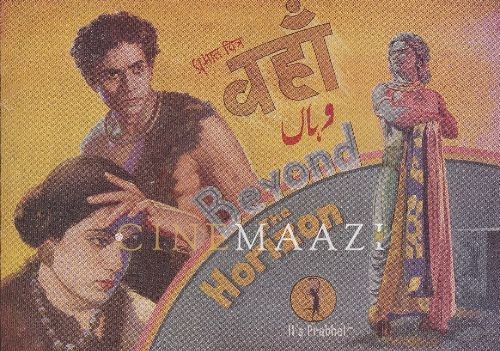
Cast
-
Shanta Apte
Lata -
Leela Chitnis
Jayanthi -
Karuna Devi
Neela -
Chandramohan
Kodandvarma -
Prahlad
Jeevan -
Ullhas
Uttam -
Chhotu
Madhuvrata -
Gajendra
Shambook -
Vasant Desai
Purohit
Crew
-
BannerPrabhat Chitra, Bombay
-
Director
-
Music Director
-
Lyricist
-
Dialogues
-
Cinematography
-
Sound Recording/ Audiography
-
Art Director/Production Design






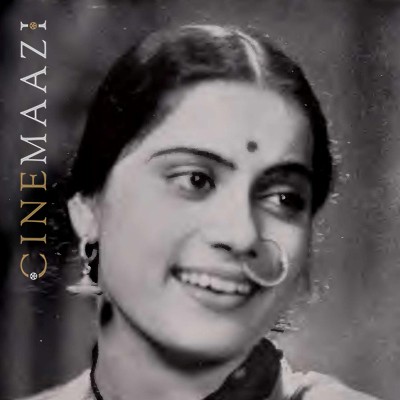
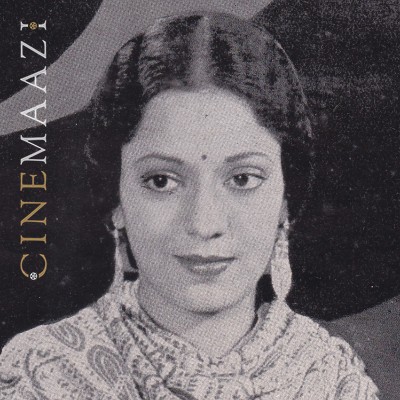

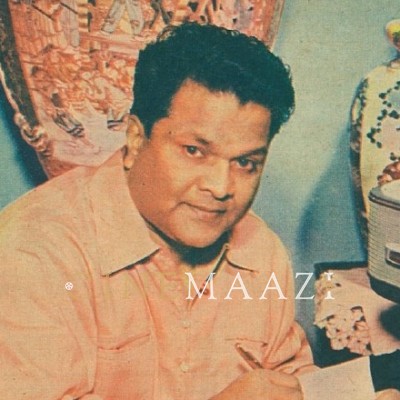
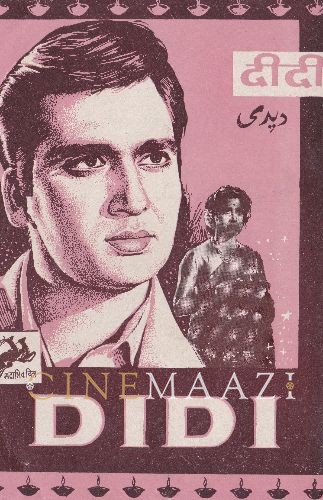


.jpg)



